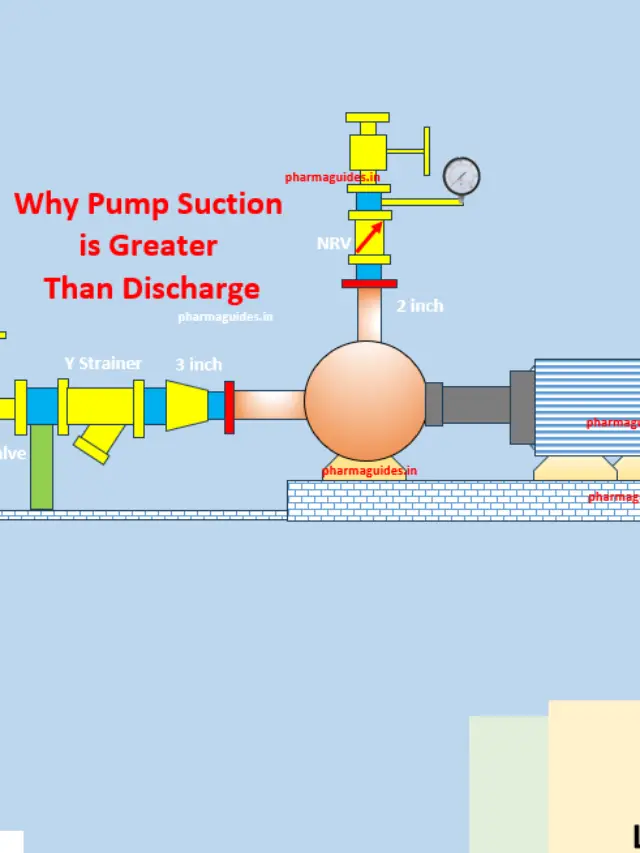Article Contents
Solar Panel

Solar Panel Business in India :- A solar panel is a device that converts sunlight into electrical energy using photovoltaic cells. These cells, typically made of semiconductor materials like silicon, generate a direct current (DC) when exposed to sunlight. The photovoltaic effect allows electrons to be released, creating an electric current. Solar panels are an integral component of solar power systems, providing clean and renewable energy. They find applications in residential, commercial, and industrial settings, contributing to sustainable power generation and reducing dependence on fossil fuels. The efficiency of solar panels has improved over time, making them a viable and increasingly cost-effective solution for harnessing solar energy. As a key player in the transition to clean energy, solar panels play a crucial role in mitigating climate change and promoting environmentally friendly power generation, how to start solar panel business.
Solar Panel Business in India | how to start solar panel business
Title: Illuminating Opportunities: The Growing Solar Panel Business in India
In recent years, India has emerged as a beacon of sustainable energy, with the solar panel business playing a pivotal role in the country’s quest for cleaner and more efficient power sources. The sun-drenched landscape and a government committed to renewable energy initiatives have created a fertile ground for the flourishing solar industry.
A Radiant Revolution:
India’s solar panel business has witnessed exponential growth, fueled by a combination of factors. Government incentives, subsidies, and a favorable policy framework have encouraged businesses and individuals to adopt solar solutions. The ambitious target of achieving 175 GW of renewable energy capacity by 2022, with a significant share from solar, has sparked a solar revolution across the nation.
Government Initiatives and Incentives:
The Government of India has introduced several initiatives to bolster the solar sector. Schemes like the Pradhan Mantri Kisan Urja Suraksha evam Utthaan Mahabhiyan (PM-KUSUM) aim to solarize agricultural activities, providing farmers with a dual benefit of energy and income. The Atal Jyoti Yojana (AJAY) focuses on illuminating rural areas using solar street lights, contributing to both energy access and sustainability.
Rising Demand and Falling Costs:
The increasing awareness of environmental issues and the need for sustainable energy sources have driven a surge in demand for solar panels. Simultaneously, advancements in technology and economies of scale have led to a significant reduction in the cost of solar power generation. This cost-effectiveness has made solar energy an attractive option for businesses and households alike.
Entrepreneurial Opportunities:
The vibrant solar ecosystem in India has opened up a plethora of entrepreneurial opportunities. Solar panel manufacturing, installation, maintenance, and consultancy services are areas witnessing a surge in innovative startups. Entrepreneurs are leveraging technological advancements such as artificial intelligence and data analytics to optimize solar power generation and enhance system efficiency.
Challenges and Solutions:
Despite the promising growth, challenges persist. Financing hurdles, grid integration issues, and policy uncertainties pose obstacles to the industry’s expansion. However, strategic collaborations between the government, private sector, and international organizations are actively addressing these challenges. Additionally, research and development efforts are focused on enhancing storage solutions and improving overall system efficiency.
The Road Ahead:
The future of the solar panel business in India looks exceedingly bright. As technology evolves and economies of scale continue to drive down costs, solar energy is becoming increasingly competitive with conventional sources. With a commitment to sustainable development, India is poised to emerge as a global leader in the solar sector, harnessing the power of the sun to light up a greener and cleaner tomorrow. As the solar panel business continues to evolve, it not only illuminates homes and businesses but also lights the way towards a more sustainable and eco-friendly future for India.
How to Start Solar Panel Business in India
Starting a solar panel business in India involves careful planning, adherence to regulations, and a commitment to sustainability. Here’s a step-by-step guide to help you navigate the process:
1. Research and Market Analysis:
- Conduct thorough research on the solar industry in India, including market trends, demand, and competition.
- Identify potential customers and target markets.
- Understand government policies, incentives, and subsidies related to solar energy.
2. Create a Business Plan:
- Outline your business goals, target market, revenue streams, and marketing strategies.
- Include financial projections, budget estimates, and funding requirements.
- Define your unique selling proposition (USP) and competitive advantage.
3. Legal Compliance:
- Register your business with the appropriate authorities, such as the Ministry of Corporate Affairs (MCA) in India.
- Obtain necessary licenses and permits for manufacturing, installation, and business operations.
- Comply with environmental regulations and quality standards.
4. Funding and Finance:
- Explore funding options, such as loans, grants, or investors.
- Prepare a detailed financial plan, including startup costs, working capital, and projected returns.
- Consider partnerships or joint ventures to leverage resources and expertise.
5. Location and Infrastructure:
- Choose a suitable location for your solar panel manufacturing facility or business operations.
- Ensure access to a reliable power supply and necessary infrastructure.
- Set up a workspace that complies with safety and environmental standards.
6. Supply Chain Management:
- Establish relationships with suppliers for raw materials, solar cells, and other components.
- Ensure a robust supply chain to avoid disruptions in manufacturing and delivery.
- Consider partnerships with local and international suppliers.
7. Technology and Equipment:
- Invest in high-quality manufacturing equipment for solar panel production.
- Stay updated on technological advancements in solar energy.
- Implement efficient production processes to optimize costs and improve product quality.
8. Quality Control and Testing:
- Implement stringent quality control measures throughout the manufacturing process.
- Conduct regular testing to ensure compliance with international standards.
- Obtain relevant certifications for your solar panels.
9. Marketing and Branding:
- Develop a strong brand identity and marketing strategy.
- Highlight the environmental benefits and cost savings of solar energy.
- Utilize online and offline channels to reach potential customers.
10. Installation and Maintenance Services:
- Consider offering installation and maintenance services to provide end-to-end solutions.
- Train a skilled workforce for installation and customer support.
- Build a customer service system to address inquiries and issues.
11. Stay Informed and Innovate:
- Stay informed about industry trends, technological advancements, and policy changes.
- Foster a culture of innovation within your business to stay competitive.
- Explore opportunities for research and development in solar technology.
Starting a solar panel business in India requires a comprehensive approach, from legal compliance and manufacturing to marketing and customer service. By aligning your business with sustainability goals and leveraging available incentives, you can contribute to India’s growing solar industry while building a successful enterprise.
Solar Panel Business Plan
The following business plan outlines the strategic approach for establishing and operating a solar panel business in India. The goal is to capitalize on the growing demand for sustainable energy solutions while providing quality solar panels and related services.
Business Description:
The business will focus on the manufacturing, distribution, and installation of solar panels. Our product line will include a range of solar panels catering to residential, commercial, and industrial customers. Additionally, we will offer installation services and ongoing maintenance.
Mission and Vision:
Our mission is to accelerate the adoption of solar energy by providing high-quality, cost-effective solar panels and services. We envision a future where clean and sustainable energy is accessible to everyone.
Market Analysis:
- Target Market:
- Residential homeowners
- Commercial and industrial establishments
- Agricultural sector for solar-powered irrigation
- Market Trends:
- Increasing awareness of environmental sustainability
- Government initiatives promoting solar energy
- Declining costs of solar technology
- Competitive Analysis:
- Identify key competitors and assess their strengths and weaknesses.
- Differentiate our offerings through product quality, innovation, and customer service.
Products and Services:
- Solar Panels:
- Varied range for different applications
- High-efficiency panels using the latest technology
- Installation Services:
- Professional installation teams
- Customized solutions for each customer
- Maintenance and Support:
- Ongoing maintenance services
- Customer support for issue resolution
Operations Plan:
- Location:
- Establish a manufacturing facility in a strategically located area.
- Regional offices for distribution and installation services.
- Supply Chain:
- Build relationships with reliable suppliers for raw materials.
- Implement efficient logistics for timely production and delivery.
- Quality Control:
- Stringent quality control measures at every stage of production.
- Regular testing and adherence to industry standards.
Marketing and Sales:
- Marketing Strategy:
- Online and offline marketing channels
- Educational content on the benefits of solar energy
- Sales Strategy:
- Direct sales teams for B2B and B2C sales
- Partnerships with local distributors
- Customer Relationship Management:
- Establish a customer service system for inquiries and support.
- Gather feedback for continuous improvement.
Financial Projections:
- Startup Costs:
- Manufacturing equipment
- Facilities setup
- Initial marketing expenses
- Revenue Streams:
- Sales of solar panels
- Installation services
- Maintenance contracts
- Financial Forecast:
- Projected revenue, expenses, and profits for the next 3-5 years.
Risk Management:
- Regulatory Risks:
- Stay updated on government policies and adapt accordingly.
- Legal counsel to ensure compliance.
- Supply Chain Risks:
- Diversify suppliers to mitigate risks of shortages.
- Implement inventory management systems.
- Market Risks:
- Continual market analysis to adapt to changing trends.
- Flexibility to cater to evolving customer needs.
10 Solar Panel Business Ideas
1. Solar Panel Manufacturing:
Establish a solar panel manufacturing facility to produce high-quality solar panels for residential, commercial, and industrial applications. Invest in state-of-the-art technology and ensure compliance with industry standards to deliver efficient and reliable solar panels.
2. Solar Panel Installation Services:
Offer professional installation services for solar panels, catering to homeowners, businesses, and agricultural setups. Provide end-to-end solutions, from site assessment to system design and installation, ensuring a seamless transition to solar energy.
3. Solar Panel Maintenance and Repair:
Specialize in providing maintenance and repair services for existing solar panel installations. Services may include regular cleaning, system inspections, and prompt repairs to optimize performance and prolong the lifespan of solar panels.
4. Solar Panel Distribution:
Become a distributor for solar panels, partnering with manufacturers to supply panels to retailers, installers, and other businesses. Focus on building strong relationships with manufacturers and offering a diverse range of solar panels to meet market demands.
5. Solar Panel Leasing and Financing:
Provide financing options or leasing services for individuals and businesses looking to install solar panels but prefer a more cost-effective approach. Develop flexible financing plans and educate customers on the long-term savings associated with solar energy.
6. Solar Energy Consulting:
Offer consulting services to guide individuals and businesses through the process of adopting solar energy. Provide expertise in system design, regulatory compliance, and financial analysis to help clients make informed decisions about solar installations.
7. Solar-Powered Products Retail:
Start a retail business that focuses on selling solar-powered products such as solar lights, chargers, and other gadgets. Curate a selection of innovative and eco-friendly solar products for residential and outdoor use.
8. Solar Water Heating Systems:
Specialize in manufacturing, installing, or selling solar water heating systems for residential and commercial use. Emphasize the energy efficiency and cost savings associated with solar water heating technology.
9. Off-Grid Solar Solutions:
Develop off-grid solar solutions for remote areas or locations with limited access to the electrical grid. Customize solar power systems to meet the specific needs of off-grid communities, providing a reliable and sustainable energy source.
Solar Panel Business Profit
A solar panel business can be profitable due to the increasing demand for sustainable energy solutions. As awareness of environmental issues grows, individuals and businesses are seeking clean and renewable alternatives, making solar panels a popular choice. The profitability stems from various revenue streams, including the sale of solar panels, installation services, maintenance contracts, and potential government incentives. Additionally, advancements in solar technology have led to more cost-effective manufacturing processes, improving profit margins. The long-term benefits of reduced energy costs for customers enhance the marketability of solar panels. Strategic marketing, quality products, and staying abreast of industry trends contribute to sustained profitability in the solar panel business. Moreover, the global push towards renewable energy and favorable government policies create a conducive market environment for solar businesses to thrive economically while contributing to a greener future.
Is solar panel business profitable in India?
Several factors contribute to the favorable environment for solar businesses:
- Government Initiatives: The Indian government has been actively promoting solar energy through various initiatives and policies, such as the Jawaharlal Nehru National Solar Mission (JNNSM) and incentives like subsidies and tax benefits.
- Rising Energy Demand: India’s growing population and increasing energy demand, coupled with a focus on sustainable development, have fueled the demand for solar panels.
- Falling Costs: The cost of solar panels and associated technologies has been decreasing globally, making solar energy more accessible and cost-effective for consumers.
- Environmental Awareness: Increased awareness of environmental issues and a desire for clean energy solutions have driven individuals and businesses to adopt solar power.
- Grid Connectivity: Improvements in grid connectivity and net metering policies allow solar users to sell excess electricity back to the grid, enhancing the economic viability of solar installations.
- Entrepreneurial Opportunities: The solar sector in India offers various entrepreneurial opportunities, including manufacturing, installation, maintenance services, and more.
It’s essential to note that market conditions can change, and it’s advisable to conduct recent market research or consult with industry experts to get the latest information on the profitability of the solar panel business in India. Additionally, policy changes and advancements in technology can impact the dynamics of the solar industry.
Is a solar panel business profitable?
Yes, a solar panel business can be profitable due to the increasing demand for sustainable energy solutions, government incentives, and advancements in solar technology. The long-term benefits of reduced energy costs for customers enhance marketability.
How to start up a solar panel business?
To start a solar panel business, conduct market research, create a comprehensive business plan, secure necessary licenses, establish a reliable supply chain, invest in quality technology, and consider offering installation and maintenance services.
Can I profit from solar panels?
Yes, individuals and businesses can profit from solar panels through various revenue streams, including the sale of panels, installation services, and potential government incentives. Reduced energy costs for customers enhance the marketability of solar panels, how to start solar panel business.
How do I write a business plan for a solar company?
Write a solar company business plan by outlining goals, target market, financial projections, supply chain management, marketing strategy, and risk management. Clearly define your unique selling proposition and competitive advantage.
What is the profit margin on solar panels?
Profit margins on solar panels can vary, but improvements in manufacturing processes and falling technology costs have contributed to more favorable profit margins in the solar industry.
Is it hard to start a solar company?
Starting a solar company requires thorough planning, compliance with regulations, supply chain management, and technological investments. While challenging, the demand for solar energy creates ample opportunities for success.
What’s the best solar company?
Determining the “best” solar company depends on specific criteria, including product quality, services offered, customer satisfaction, and market presence. Research and customer reviews can help identify top performers.
Why is solar unprofitable?
Solar is generally profitable, but challenges may arise due to high initial costs, regulatory hurdles, or insufficient market demand. Adapting business strategies, staying informed, and offering competitive services can mitigate challenges., Solar Panel Business Ideas.
Are solar sales slowing down?
As of my last update in January 2022, there was no evidence of solar sales slowing down. On the contrary, the demand for solar panels was steadily increasing due to environmental awareness and government initiatives. However, market conditions can change, and recent updates are advisable.













